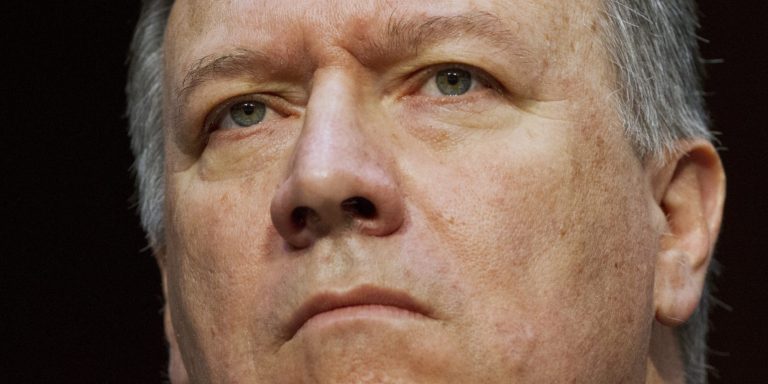INTELBRIEF
March 23, 2018
IntelBrief: Iran Nuclear Agreement Imperiled

- It is increasingly likely that President Donald Trump will withdraw the United States from the landmark 2015 multilateral nuclear agreement with Iran at the next decision deadline on May 12.
- The replacement of Rex Tillerson by CIA Director Mike Pompeo as Secretary of State could prove pivotal in President Trump’s decision-making about the future of the deal.
- Trusted foreign leaders who President Trump has met with recently, including Israeli Prime Minister Benjamin Netanyahu and Saudi Crown Prince Mohammad bin Salman Al Saud, have amplified the President’s criticisms of the agreement.
- It is not certain that a U.S. withdrawal from the accord would necessarily cause its collapse because Iran and the other parties to the accord will try to continue implementing it.
.
In explaining his March decision to replace Rex Tillerson with CIA Director Mike Pompeo as Secretary of State, President Trump cited his disagreement with Tillerson over the 2015 nuclear agreement with Iran. Tillerson argued that the accord failed to address the broad range of U.S. concerns about Iran but nonetheless served U.S. interests by limiting Iran’s nuclear program for many more years. As a congressman prior to joining the Trump Administration, Pompeo advocated not only increased sanctions but also U.S. efforts to change Iran’s regime.
Pompeo's nomination as Secretary of State has been widely interpreted to indicate that President Trump will implement his threat to withdraw from the accord unless European countries and Congress address the agreement’s key flaws: the expiration of the nuclear restrictions, limitations on inspections access, and the absence of binding limits on Iran’s development of ballistic missiles. With no European or congressional consensus emerging on how to satisfy President Trump’s demands, the U.S. would presumably withdraw from the agreement by the May 12 deadline for the President to renew a waiver of major Iran sanctions. The sense that President Trump will end U.S. participation in the agreement was reflected by a leading foreign policy figure, Senate Foreign Relations Committee Chairman Bob Corker, who said on March 18 ‘Right now, it doesn’t feel like it’s going to be extended.’
Senator Corker’s comments came as key U.S. allies that take hardline positions on Iran met with President Trump and reinforced his distaste for the Iran deal. Israeli Prime Minister Benjamin Netanyahu, a vocal opponent of the Iran agreement, met President Trump in early March and reiterated his view that the accord is fundamentally flawed and must be renegotiated. On March 20, President Trump received Saudi Crown Prince Mohammad bin Salman (MBS), a figure who has undertaken military action in Yemen in the interests of countering Iran’s regional influence. On the eve of his visit, the Saudi Crown Prince accused Iran of the expansionism practiced by Adolf Hitler and said the Kingdom would develop a nuclear weapon if Iran does.
Despite the similarity of views on Iran between President Trump and his key interlocutors, the fate of the Iran nuclear accord remains uncertain. With one year as CIA Director, Mike Pompeo is now well briefed on Iran’s compliance with the nuclear deal and the likely backlash from European countries if the United States leaves the agreement. It is conceivable that, as Secretary of State, he might counsel President Trump to stay in the accord. Even if the United States withdraws, the European countries, along with Russia and China, are likely to continue implementing the agreement with Iran. In so doing, European governments will likely encourage their corporations to continue transactions with Iran and try to protect them from re-imposed U.S. sanctions. Russia and China are likely to continue economic engagement with Iran despite the U.S. sanctions threat. These outcomes would leave the United States in the unwanted position of being virtually isolated on the Iran issue.
.
For tailored research and analysis, please contact: info@thesoufancenter.org
[video width="960" height="540" mp4="https://thesoufancenter.org/wp-content/uploads/2018/03/Final-Edit-1-157.mp4" poster="https://thesoufancenter.org/wp-content/uploads/2018/03/AP_17337065615636-copy-e1521808539560.jpg"][/video]